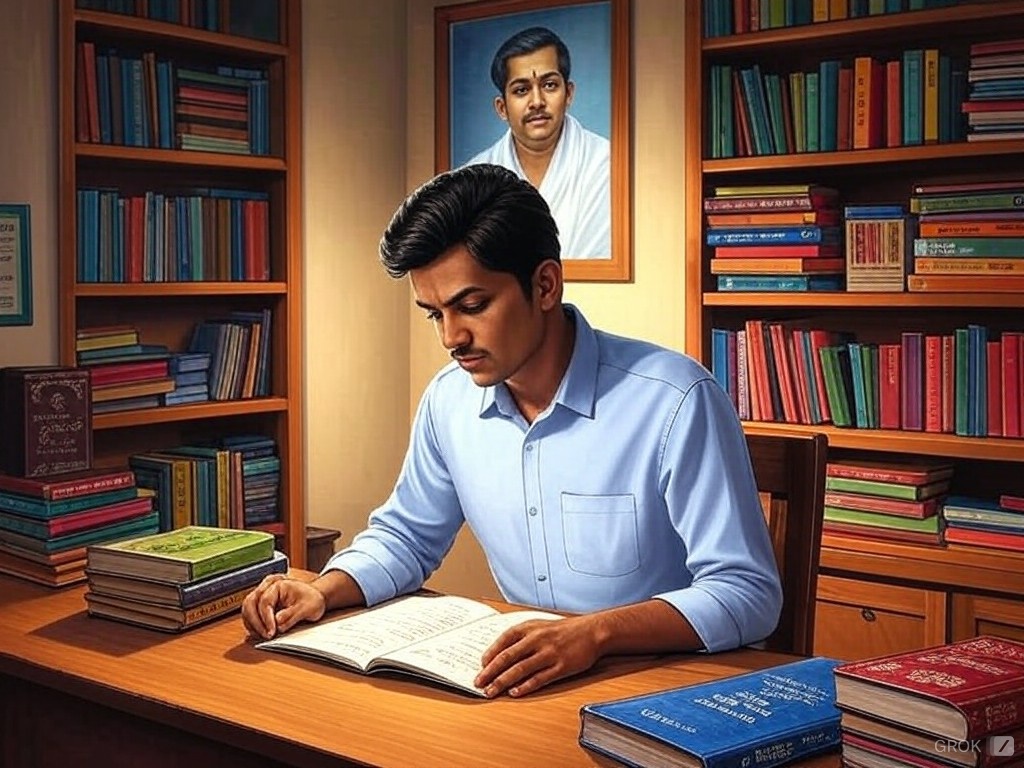Exploring the Thiruvalluvar University 1st Year Tamil Question Paper
Thiruvalluvar University, named after the revered Tamil poet and philosopher Thiruvalluvar, is well-known for its dedication to promoting Tamil literature and culture. As students embark on their journey in the first year of their Tamil studies, understanding the structure and content of the question paper is crucial for success. Here’s a comprehensive guide to the 1st Year Tamil Question Paper at Thiruvalluvar University.
Introduction to Thiruvalluvar University
Located in Vellore, Tamil Nadu, Thiruvalluvar University has carved a niche for itself in fostering academic excellence with a strong focus on Tamil heritage. The university’s commitment to Tamil culture is reflected in its curriculum, particularly in the Tamil language and literature courses.
Structure of the 1st Year Tamil Question Paper
The first-year Tamil examination is structured to assess a range of competencies:
- Prose Analysis: Students are often required to comprehend and interpret selected prose pieces. This section might include excerpts from classic Tamil texts like “Thirukkural,” which is central to Tamil studies due to its moral and philosophical insights.
- Poetry Interpretation: This involves evaluating students’ understanding of poetry, focusing on both the literal and metaphorical meanings. Works from celebrated Tamil poets like Bharathiyar, Kannadasan, and Avvaiyar are commonly included.
- Grammar: This section tests students’ grasp of Tamil grammar, which includes syntax, vocabulary, and linguistic nuances. Familiarity with standard grammar texts is advised for preparation.
- Essay Writing: Here, students’ ability to construct coherent, creative, and well-structured essays is assessed. This can range from literary analysis to personal essays on Tamil culture.
- Translation: This part examines bilingual proficiency, asking students to translate between Tamil and English or other languages, focusing on accuracy and context.
Duke University A Legacy of Excellence
Key Topics Covered
- Prose: Topics include philosophical and moralistic texts like “Thirukkural,” historical narratives from Sangam literature, and modern Tamil writings.
- Poetry: Emphasis is on understanding the socio-cultural context, literary devices, and philosophical implications of Tamil poetry.
- Grammar: Key areas include verb conjugation, case usage, and the nuances of classical vs. modern Tamil language structures.
- Essay and Translation: Students need to demonstrate proficiency in both written expression and linguistic translation skills.
Preparation Tips
- Regular Practice: Engage with Tamil texts daily to improve reading and comprehension skills. Practice writing essays on varied topics to enhance your writing style.
- Use of Previous Papers: Download and review past question papers to get a sense of the exam pattern and frequently asked questions. Thiruvalluvar University provides access to previous years’ question papers on their official website.
- Grammar Exercises: Dedicate time to mastering Tamil grammar through exercises from textbooks or online resources.
- Cultural Context: Understanding the cultural backdrop of Tamil literature enhances interpretation and appreciation, making your answers more insightful.
Northwestern University Excellence in Education
Tips for Thiruvalluvar University 1st Year Tamil Question Paper:
Study Techniques
- Active Reading: Don’t just read; engage with the text. Ask questions like “What is the main theme?” or “How does this relate to today’s world?” This will deepen your understanding and retention.
- Flashcards: Use flashcards for grammar rules, vocabulary, and key literary terms. This is particularly effective for memorizing complex grammatical structures or poetic devices.
- Group Study: Form or join study groups. Discussing texts with peers can reveal new interpretations and help clarify doubts. Plus, teaching others can reinforce your own understanding.
- Mock Tests: Regularly take mock exams. This practice helps in managing time effectively during the actual exam and familiarizes you with the exam format.
Resource Utilization
- Library Resources: Make the most of university libraries. They often have special collections of Tamil literature, rare manuscripts, or references that can enrich your study.
- Online Platforms: Engage with online forums, YouTube channels, or educational websites dedicated to Tamil studies. Look for video lectures, podcasts, or interactive quizzes.
- Workshops and Seminars: Attend any workshops or seminars organized by the university or Tamil literary societies. These can provide insights into contemporary interpretations and research in Tamil studies.
Writing Skills Development
- Daily Writing Practice: Set aside time each day to write in Tamil. This could be journaling, summarizing news in Tamil, or writing short stories. It improves fluency and enhances your expressive capabilities.
- Peer Review: Exchange essays with classmates for feedback. Constructive criticism can be invaluable in improving your writing style and argumentation.
Mental Preparation
- Stress Management: The pressure of exams can be overwhelming. Practice stress-relief techniques like meditation, yoga, or simply taking breaks to do something you enjoy.
- Regular Sleep and Diet: Never underestimate the power of a well-rested mind and body. Good sleep and nutrition are crucial for cognitive function.
- Stay Motivated: Keep your motivation high by setting small, achievable goals. Celebrate these small victories to keep your morale up.
Exam Day Strategies
- Time Management: Understand the weightage of each section and plan your time accordingly. Don’t spend too long on one question at the expense of others.
- First Read Through: Quickly skim through the paper to get an idea of all questions before you start writing. This helps in deciding where to start based on your confidence level.
- Answer Clearly: Write legibly and structure your answers with clear introductions, body, and conclusions, especially for essays. Use headings or bullet points where appropriate for clarity.
- Review: If time permits, review your answers. Look for grammatical errors or incomplete thoughts that can be corrected.
Cultural Immersion
- Cultural Events: Participate in or observe cultural events, festivals, or literary gatherings. This not only enriches your cultural knowledge but also your language skills in a practical setting.
- Reading Beyond Syllabus: Explore Tamil literature outside the curriculum. Reading additional authors or modern works can broaden your perspective and vocabulary.
By implementing these strategies, students can not only prepare effectively for their exams but also develop a lifelong appreciation for Tamil language and literature. Remember, the journey through Tamil studies at Thiruvalluvar University is as much about personal growth and cultural enrichment as it is about academic achievement.
Conclusion
The 1st Year Tamil question paper at Thiruvalluvar University is not just a test of language proficiency but an exploration into the rich tapestry of Tamil literature and culture. By preparing thoroughly in each section, students can not only excel in their examinations but also gain a deeper appreciation for Tamil heritage. Whether you’re analyzing prose, deciphering poetry, or mastering the complexities of Tamil grammar, each aspect of the exam is an opportunity to connect with one of the world’s oldest living languages.
Remember, success in this exam is a step towards embracing and contributing to the preservation of Tamil culture. Good luck to all the students gearing up for this enlightening journey!

